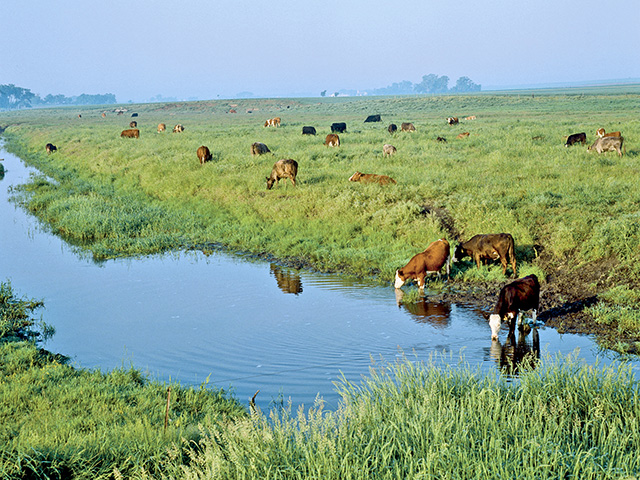New Water Rule on Hold in Colorado
Navigable Waters Protection Rule Took Effect on Monday
OMAHA (DTN) -- The new Navigable Waters Protection Rule, largely supported by agriculture and other industries, will not take effect in Colorado after a federal judge issued a preliminary injunction last Friday.
Yet, a federal judge in California rejected a request by environmental groups for a preliminary injunction against the rule that took effect on June 22.
The legal battle against the Trump administration rule has continued to expand.
The state of Colorado successfully sued EPA and the U.S. Army Corps of Engineers in the U.S. District Court for the District of Colorado, receiving a preliminary injunction pending a review of the state's claim the agencies violated the Administrative Procedure Act in finalizing the rule.
"The federal government's proposed new definition of 'waters of the United States' conflicts with the text of the Clean Water Act, contravenes controlling Supreme Court precedent, contradicts the act's objective, and ignores sound science," the state argued in its lawsuit.
"For Colorado, if implemented, this definition will significantly reduce the waters in Colorado protected by the Clean Water Act. Because Colorado directly implements and works closely with the federal government to implement the Clean Water Act within Colorado, this new rule will deprive the state of effective tools to keep its streams and wetlands clean."
In California, the U.S. District Court for the Northern District of California on June 19 rejected a similar motion filed by the state, suggesting in its ruling the state might have been successful in filing a legal challenge of the science used to develop the new rule.
P[L1] D[0x0] M[300x250] OOP[F] ADUNIT[] T[]
"Plaintiffs point to significant irreparable harms that will occur before the litigation is resolved, if the rule is legally invalid but allowed to go into operation now," the court said in its ruling.
"Were the court tasked with the question of whether the new rule represents wise environmental policy or the best approach to protecting water resources that could be supported by scientific data, the result might be different."
The definition of navigable waters was expanded in the 2015 waters of the United States, or WOTUS, rule to include tributaries and other waters that are connected to larger navigable water bodies. The review came as a result of an executive order by President Donald Trump.
Those areas, the EPA contended, should be considered WOTUS because they are linked to streams, rivers and other traditional navigable waters by a so-called significant nexus.
Agriculture, other industry groups and state governments across the country alleged the WOTUS rule expanded federal jurisdiction to waters not traditionally protected by the Clean Water Act.
The administration also faces ongoing legal challenges by the New Mexico Cattle Growers Association in a federal court in New Mexico, as well as a challenge from environmental groups in a federal court in South Carolina.
The new Navigable Waters Protection Act still leaves farmers and ranchers exposed to regulation of private property, an amended lawsuit filed in federal court on Monday alleges.
The original lawsuit filed by the New Mexico Cattlemen's Association also targets the 1986 regulation, alleging both versions illegally regulate non-navigable ponds, wetlands and tributaries.
The group originally filed a lawsuit in November 2019 challenging the 1986 regulation. The challenge came after the EPA finalized a repeal of the 2015 rule, because the repeal reverted back to the 1986 rule until the most recent rewrite was completed.
In South Carolina, conservation groups have alleged in a federal lawsuit the agencies completed the Navigable Waters Protection Act based on "political winds and currents."
Fourteen groups, led by the South Carolina Coastal Conservation League, filed the lawsuit in the U.S. District Court for the District of South Carolina.
The Navigable Waters Protection Act is alleged by the groups to have the effect of "dramatically reducing the universe of waters protected" by the Clean Water Act.
Todd Neeley can be reached at todd.neeley@dtn.com
Follow him on Twitter @toddneeleyDTN
(c) Copyright 2020 DTN, LLC. All rights reserved.




